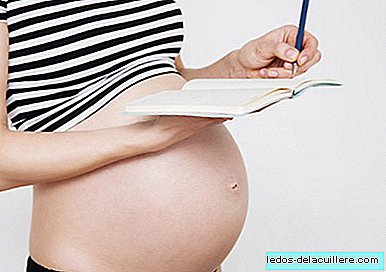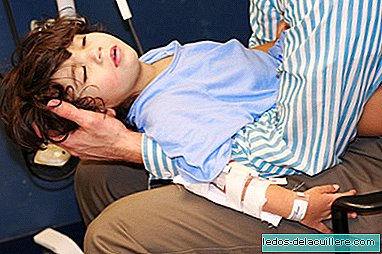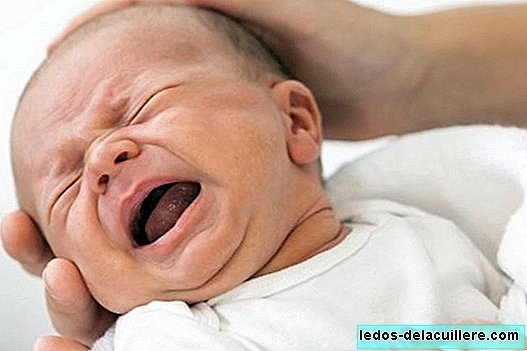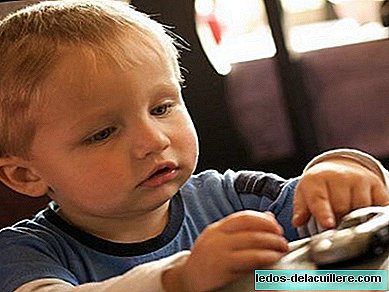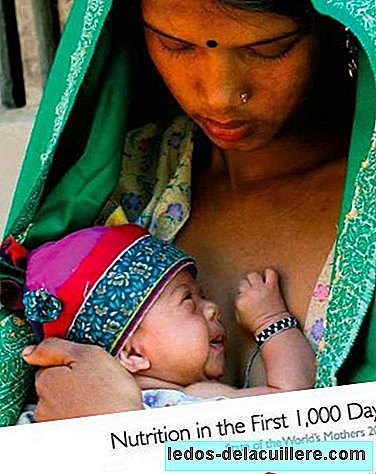
Last year we were in 12th place, and now Spain drops four places in the ranking of the best countries to be a mother, placing in the sixteenth place, below France and Portugal and above Estonia and Switzerland.
This is what we see in the "State of the Mothers 2012" report by Save the Children, where Norway repeats first, Iceland and Sweden also appear on the podium, with Australia disappearing from second place (it falls to seventh).
The NGO document analyzes the best and worst countries to be a mother based on factors such as the educational, economic, health and political status of mothers, as well as the basic well-being of their sons and daughters.
The fourth best country to be a mother is New Zealand, followed by Denmark, Finland, Australia, Belgium, Ireland and the Netherlands and the United Kingdom, which share tenth place. As every year, eight of the ten countries that lead the ranking are in Europe, while eight of the ten worst countries to be a mother are in Sub-Saharan Africa.
So, of a total of 165 countries analyzed, the last one is Niger, replacing Afghanistan, which was at the bottom of the ranking the last two years and is now the penultimate. In Niger, one million children's lives are in danger of malnutrition. Ahead, Yemen, Guinea-Bissau, Mali, Eritrea, Chad, Sudan, South Sudan and Republic of the Congo.
Also, while in Norway a woman receives an average of 18 years of education, has a life expectancy of 82 years, 82% use contraceptive methods and only 1 in 175 mothers is at risk of losing a child before turn five, in Niger the life expectancy of women is 56 years, they receive on average 4 years of education, only 5% use contraceptive methods and 1 in 7 children dies before their fifth birthday.
Nutrition during the first 1000 days
This year, the Save the Children report emphasizes nutrition during the first years of children's lives. And it is that malnutrition is the underlying cause of more than 2.6 million infant deaths per year.
Among those who survive, one in four children in the world suffers from chronic malnutrition, so their bodies and brains do not develop properly. A third of children in Asia (about 100 million) suffer from chronic malnutrition. In Africa almost two out of five, about 60 million in total.
But this problem is not exclusive to babies and children. The health status of mothers, which often suffer from malnutrition, directly influences the health of your child.
In sub-Saharan Africa, up to 20% of women are excessively thin, in South Asia this figure reaches 35%. In addition, in developing countries 49% of pregnant women have anemia, a significant cause of maternal mortality that can cause premature births and low birth weight in the newborn.
According to Save the Children, proper nutrition during the beginning of pregnancy It is crucial to protect both mothers and children.
Life-saving measures
For the NGO there are six essential measures that act as lifeguards in the first 1000 days of the baby and that they can reach any mother in the world: breastfeeding, supplementary feeding, vitamin A, iron, zinc and good hygiene practices.
We already know that breast milk saves lives, up to one million children a year, however less than 40% of children in developing countries benefit from exclusive breastfeeding due to lack of information, political commitment and of specific programs that facilitate breastfeeding.
In addition, those responsible for Save the Children ask governments, donors and international agencies to prioritize investment in health workers and girls' education, two key aspects to break the cycle of malnutrition.
The case of Spain
There are many measures that can increase the well-being of mothers and children in the world, unfortunately the involvement of political and health leaders is required and not always for free, which causes the situation to worsen in many places in times of crisis.
Spain has been descending positions since in 2006 it was in ninth place, as in 2007. Already in 2008 it descended to twelfth place, in 2009 it ranked 11, in 2011 it was 13 and last year we recovered a step, standing at number 12.
If a few years ago we thought it was possible to increase the weeks of maternity leave to resemble some of the surrounding countries (Spain with 16 weeks is well below the United Kingdom or Denmark, which enjoy 52 weeks), many may see this measure impossible in the current era, and at least until the economic situation improves.
The report also shows that Spain has a high life expectancy of 85 years, similar to that of France or Switzerland and only exceeded by Japan and a mortality rate of children under five years of 5 per 1,000. Data on women in political power are also taken into account, along with other variables that influence the welfare state of families.
Spain drops four places in the ranking of the best countries to be a mother, the situation of the reconciliation policies of family and work life are stopped, it seems that there are priorities in the reforms to move the country forward and this obviously affects the well-being of mothers and children also in our country.
Official Site | Save the Children More information | Peques and more In Babies and more | State of the World's Mothers 2007, Spain remains, World State of the Mothers 2008: Spain descends to position 12, The map of motherhood in Europe


